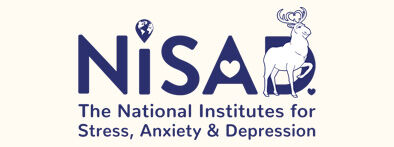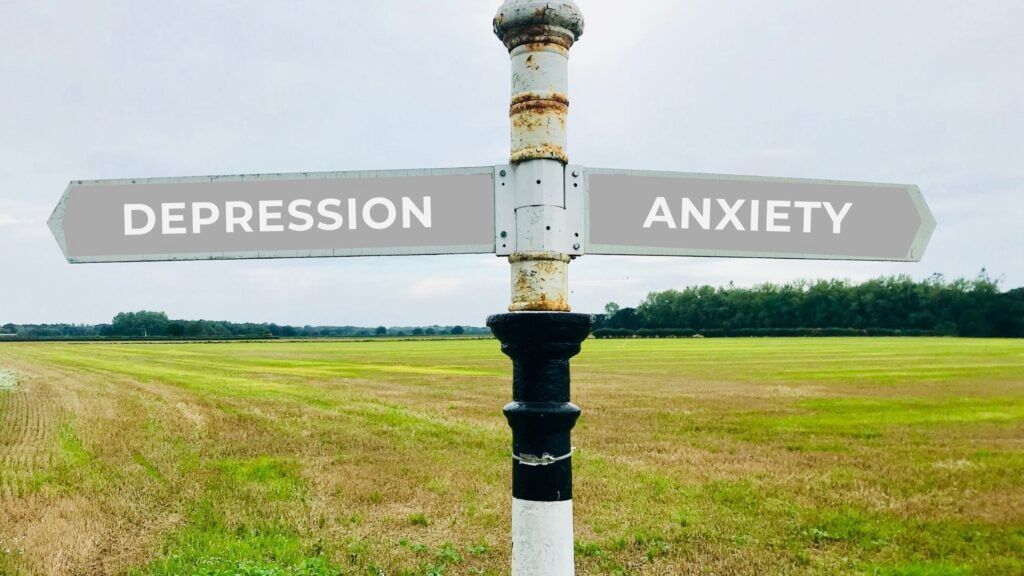With increasing conversations around mental health, we’re all becoming more aware of our own psychological makeup.
I’m certainly of a generation who never talked about their own mental health maladies, in fact, it wasn’t until twenty years after the fact that I learnt that several frightening and painful episodes in my teens were actually panic attacks.
I’d tuned into a daytime television programme and a guest was describing the exact same symptoms, shortness of breath and spasmodic pains in her chest. As a teenager, my doctor dismissed it saying, “Well you’re not having a heart attack!” and nothing more was done.
Finally having a diagnosis, even many years after that GP visit, brought huge relief, reassuring me that I hadn’t imagined my pain, fear and uncertainly and that it was in fact a physical embodiment of the severe anxiety I was struggling with around that time.
As you can probably imagine it became a challenging internal debate when I decided I’d like to become a mother. I’d openly acknowledged that I regularly felt anxious and stressed, but I definitely felt concerned that I would bring these actually very normal feelings into pregnancy and motherhood. Being anxious about the possibility of being anxious, and then possibly giving my baby anxiety is really annoying! Who’s with me?
Well, here’s a thought… you know you experience anxiety, stress or depression, so you’re already onto a winner! That makes no sense, I hear you cry!
Well, the first step in managing these feelings is to acknowledge that you have them and that there is the potential to do something about them.
If you’ve decided you’d like to become pregnant, or you are pregnant already, then there’s so much you can do to alleviate symptoms and put in place strategies to manage them now, and in the future. It was definitely something I decided to do.
It may come as a surprise but I have PTSD, and in many ways, it has changed my life for the better. Experiencing such an extreme mental illness forced me to seek help and get support. It also alerted me to my own behaviours and how they were often unhelpful and damaging to my mental wellbeing.
Without PTSD I suspect I would have entered my pregnancy without the knowledge that I needed to find extra support to help me cope with the trials and tribulations of IVF, the pregnancy itself, birth and looking after a newborn.
For many women, the go-to strategy is to bottle things up and suffer in silence. If COVID has taught us anything, it’s that we can and should acknowledge the state of our mental health.
With this in mind, here are some things you could try:
1. If you enjoy writing consider keeping a diary of your mental wellbeing – how you’re feeling on a day to day basis, and any triggers that might increase stress or anxiety, or lead to a depressed cycle.
Knowing what the triggers are can help you to see them coming e.g. tiredness and exhaustion, the impact of certain relationships in your life. If you’re not a writer, perhaps consider jotting a couple of bullet points in a note on your phone.
2. Start putting support in place NOW! This could be a formalised counselling conversation, contacting a supportive, non-judgmental friend or calling a support service as and when you need it. We often don’t need a one-hour weekly appointment, and many cannot afford it. There are phone services you can call at any time of the day.
3. Consider simple lifestyle changes– reducing alcohol, taking a look at your diet, perhaps being a little more active, or prioritising sleep.
4. Finally, don’t be afraid to ask for help if and when you become pregnant. There is support available, push for it! (Pardon the pun!) It may be worth considering a doula – I highly recommend them as advocates for birthing mothers.
Stress, anxiety and depression are very human responses to life’s ups and downs, and it’s likely you’ll never be able to rid these feelings completely, but with acknowledgement, you can you manage and calm them.
Oh, and before I forget, just because you have experienced a mental illness in the past does not guarantee that you’ll experience postnatal depression – I know many women worry about this in particular.
If you have concerns get in touch with a reputable organisation who specialise in this illness or discuss it with a healthcare professional. As they say “Forewarned is forearmed.”
My PTSD did not lead to postnatal depression and for that, I will always be grateful.

Sally Kettle
FRGS
Creative Story Co-Director & CalmBaby Programme Leader
I’m the lead on our ‘CalmBaby’ programme design team and also a senior writer for the stories that form an integral part of our other ELK.Health programmes.
In my ‘spare’ time I’m the CEO of the English charity The Active Pregnancy Foundation.
Our clinical team endorses Sally’s suggestions.


